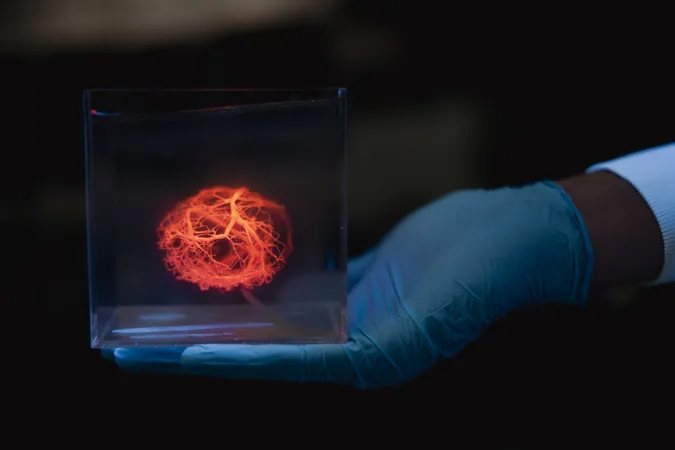
Unlocking the Secrets of Baby Steps: New Genetic Discoveries
2025-05-07
Author: Wei Ling
A Milestone Like No Other
Have you ever wondered what really influences when your little one takes their first steps? Well, a groundbreaking study from the University of Surrey has shed light on this very question, revealing that our genetic makeup plays a significant role in this pivotal moment in a baby's life.
Genetic Influences Unveiled
In a unique investigation involving over 70,000 infants, researchers have pinpointed 11 genetic markers that dictate when babies are ready to walk. This marks a pioneering exploration into how our DNA shapes not just our appearance but also crucial developmental milestones.
Nature vs. Nurture: The Genetic Contribution
Published in the prestigious journal 'Nature Human Behaviour,' the study indicates that genetics accounts for nearly 25% of the variance in when children start walking. This discovery emphasizes that parents shouldn't fret about the age at which their child begins to walk; some may naturally be early bloomers while others might take their time—all thanks to their genes.
Expert Insights: A Wider Perspective
Professor Angelica Ronald, a key researcher on the project, highlights that most babies typically start walking between 8 and 24 months. This broad timeframe marks an exciting leap for both babies and their parents, signifying the onset of greater independence.
Dr. Anna Gui, another contributor to the research, points out that previous uncertainty surrounding walking milestones often lead concerned parents to question their own parenting. This study reassures them that genetics plays a major role in when these tiny steps occur.
Beyond Walking: A Web of Genetic Connections
But the implications of this research go far beyond just walking. The same genetic factors that influence when children take their first steps are linked to brain development, playing a role in the structure of the cerebral cortex. Interestingly, walking later within the normal range may correlate with a lower risk of developing ADHD. In a fascinating twist, these genetic markers also relate to higher levels of educational achievement.
Towards a Brighter Future for Developmental Support
Professor Ronald expresses her excitement about these findings, hoping they will enhance our understanding of not only walking but broader developmental issues. The ultimate goal is to better support children facing motor disorders or learning disabilities, providing them with the tools they need to thrive.
Final Thoughts
As we uncover more about the genetic underpinnings of early childhood milestones, the path forward looks promising. These revelations not only bring insight to parents but could also revolutionize how we approach child development in medical and educational fields.




 Brasil (PT)
Brasil (PT)
 Canada (EN)
Canada (EN)
 Chile (ES)
Chile (ES)
 Česko (CS)
Česko (CS)
 대한민국 (KO)
대한민국 (KO)
 España (ES)
España (ES)
 France (FR)
France (FR)
 Hong Kong (EN)
Hong Kong (EN)
 Italia (IT)
Italia (IT)
 日本 (JA)
日本 (JA)
 Magyarország (HU)
Magyarország (HU)
 Norge (NO)
Norge (NO)
 Polska (PL)
Polska (PL)
 Schweiz (DE)
Schweiz (DE)
 Singapore (EN)
Singapore (EN)
 Sverige (SV)
Sverige (SV)
 Suomi (FI)
Suomi (FI)
 Türkiye (TR)
Türkiye (TR)
 الإمارات العربية المتحدة (AR)
الإمارات العربية المتحدة (AR)